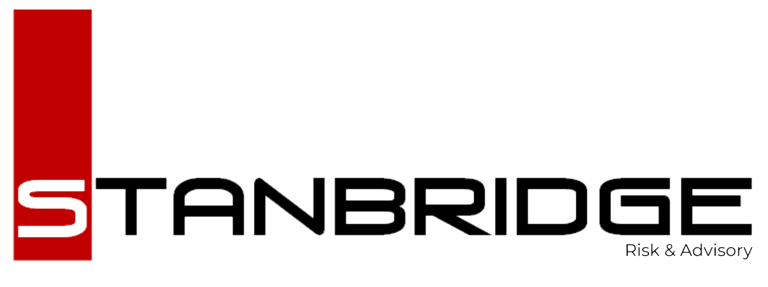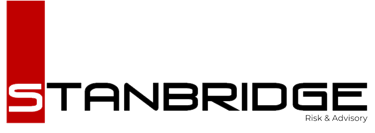
Independent International Security Risk Advisors and Auditors
SERVICES


WHO WE ARE
Our global team comprises corporate and former government service professionals which are recognized security subject matter experts in providing strategic consulting across 51 countries worldwide.
Our team is composed of elite professionals with distinguished careers in global intelligence, military, risk, and corporate security. Each member brings over two decades of senior-level experience across the EMEA, US, and CIS regions, having operated in stable environments as well as developing and conflict-affected areas. This diverse expertise enables us to deliver strategic, adaptable, and results-driven security solutions worldwide.
WHAT WE DO
We specialize in providing comprehensive security evaluations of existing services through detailed risk assessments, SLA evaluations, and operational audits. Where necessary, we develop and recommend a tailored Security Strategy accompanied by a practical Security Implementation Plan aligned with your organization’s unique needs.
Our team conducts thorough audits of your current security operations to ensure execution is consistent with approved objectives, service levels, and budgetary requirements. In addition, we offer expert advice and support in drafting customized security RFPs and guiding the evaluation of said RFP responses - ensuring strategic alignment and maximum return on your security investment.


SECTORS WE COVER
Stanbridge provides its services in the following sectors within the EMEA, CIS and US:
Large Global Corporations
Ports (air, land and sea)
Courier and Logistic Companies
Schools
Malls, Sport and Recreational Complexes
Small Medium Business Enterprises (SME)
Real Estate
Developments
Private Houses
Gated Communities
Complexes
Body Corporates
Farms
Wine Farms
Producing Farms
Game Farms (safari)
Mines, Solar, Oil & Gas Facilities


WHY USE US


Invest in Stanbridge as we save you money, ensure your security services perform as contracted and provide you a roadmap linked to outcomes, budget and timelines.
Stanbridge guarantees:
Unbiased and Objective Evaluation
Independent assessors have no vested interest in existing security contracts or service providers. This ensures a neutral and honest assessment of your security posture, highlighting issues that internal teams or vendors may overlook or downplay.
Specialized Expertise and Global Standards
They bring specialized knowledge, certifications, and a deep understanding of international best practices in security risk management, compliance, and threat mitigation—ensuring your operations are aligned with global benchmarks.
Enhanced Risk Identification and Mitigation
Independent auditors are trained to identify hidden vulnerabilities, assess threats across physical, digital, and procedural domains, and provide targeted recommendations to improve your security effectiveness.
Cost Efficiency and Value Assurance
An external audit can expose overpriced or underperforming services, ensuring your security spend is justified, strategic, and delivering true value for money. They also help prevent unnecessary future costs due to overlooked risks.
Credibility and Accountability
Independent assessments increase stakeholder confidence, especially for boards, regulators, or insurers. They provide documented, third-party validation of your security measures and ensure greater accountability across your security providers.
Message from our Principal
"On behalf of our entire team, I want to thank you for your interest in Stanbridge. I promise to always deliver high-quality services to you, our clients and partners.
We take great pride in our ability to consistently deliver top-quality personalized advice. This is achieved based on our global exposure and experience, by adhering to international best practices, quality management systems, business processes, ethical principles, our global resources and the extensive international capabilities of the entire team.
I assure you that we will add value to you as a client as we are committed to honor all services and commitments we make".


Craig
SERVICES DEFINED
Security Strategy: This is the high-level, long-term vision. It's the "what" and "why" of security. It aligns with business goals and defines what you are protecting, from whom, and what level of risk is acceptable.
Security Plan: This is the tactical, actionable roadmap. It's the "how," "when," and "who" that brings the strategy to life. It details the specific policies, procedures, technologies, and responsibilities linked to timelines and budgets.
Why It’s Important
Compiling them is crucial because they:
1. Provide Direction & Alignment: They ensure every security effort (and dollar spent) supports the business's core objectives, preventing wasted resources.
2. Ensure Proactive Defense: Instead of just reacting to incidents, a strategy and plan allow you to anticipate and mitigate risks before they happen.
3. Create Clarity & Accountability: Everyone understands their role, reducing confusion during both daily operations and a crisis.
4. Demonstrate Due Diligence: They show regulators, investors, and customers that security is taken seriously, building trust and meeting compliance requirements.
In short, the Strategy is the destination on the map, and the Plan is the step-by-step route to get there. Without both, an organization's security efforts are aimless and reactive.
Compiling Security Strategy & Security Plan
Executing Independent Security Risk Assessments is an objective evaluation of an organization's security posture conducted by an unbiased third party. It identifies vulnerabilities, threats, and risks to critical assets (like assets, information (data), people, operations and communication) without the influence of internal biases.
Why It's Important
It's crucial because it provides:
1. Objective Perspective: Uncovers blind spots that internal teams may miss due to familiarity or organizational pressure.
2. Expert Insight: Brings specialized knowledge of the latest threats and attack techniques.
3. Risk-Based Prioritization: Helps leadership make informed decisions on where to invest time and money for the greatest security improvement.
4. Compliance & Trust: Often required by regulations and demonstrates to customers, partners, and investors that security is taken seriously.
5. Ensures Quality of Current Security Services: You have or are paying for security services according to set SLA’s – we ensure you receive what you agreed upon with security service provider’s.
In short, it’s a vital "health check" that tells you your real security weaknesses before an attacker does.
Independent Security Risk Assessment
Security System Design & Integration advisors are expert consultants who plan (for future installations) and evaluate (for past installations) an organization's physical and electronic security systems. Their goal is to ensure all components—like access control, cameras, alarms, and cyber-physical systems—work together seamlessly as a unified, efficient layer of protection.
Why It’s Important
For Future Installations:
Strategic Planning: They design a system tailored to your specific risks and buildings, preventing costly over- or under-spending.
Seamless Integration: Ensure new technology works with existing systems and that different security components (e.g., cameras and door locks) talk to each other.
Avoiding Obsolescence: Recommend scalable, future-proof technology that won't need immediate replacement.
For Past Installations:
Optimize Performance: Identify gaps, weaknesses, or redundancies in your current setup and recommend upgrades or repairs.
Troubleshoot Issues: Solve persistent problems where systems don't work well together, restoring security effectiveness.
Bridge Technology Gaps: Help integrate new technology with legacy systems you already own.
In short, they transform a collection of individual security products into a cohesive, intelligent security ecosystem, maximizing both protection and return on investment for both new and existing systems.
Security System Design & Integration
Family security briefings are private, customized educational session for a high-net-worth family or individuals who want to educate their family regarding their specific environment. It covers specific security threats, personal safety protocols, and emergency procedures relevant to their lifestyle, travel, and assets.
Why Its Important
Hiring an independent, external expert is crucial because they provide:
1. Objectivity & Frankness: They can deliver uncomfortable truths without the fear of employer-employee dynamics, ensuring the family hears an unbiased risk assessment.
2. Specialized Expertise: They bring knowledge of the latest global and digital threats, criminal tactics, and countermeasures that internal staff may not possess.
3. Confidentiality & Trust: A neutral third party ensures sensitive information about the family's life, travel, and wealth is not shared within a corporate structure or compromised by internal conflicts.
4. Credibility & Authority: Their independent status gives their recommendations more weight, encouraging family members to take the security advice seriously.
In short, an experienced 3rd party transforms the briefing from a generic lecture into a credible, trusted, and actionable security plan that the family is more likely to adopt.
Family Security Briefings
Security Compliance Auditing is the independent process of checking whether an organization's security policies, procedures, and technical controls meet a specific set of external rules or internal standards.
These rules can be:
External: Country Laws
Internal: The company's own security policies and risk management frameworks.
Why It Is Important
Implementing it is crucial because it:
1. Provides Proof of Compliance: It's not enough to say you're secure; an audit offers verifiable evidence to regulators, partners, and customers.
2. Reduces Legal and Financial Risk: Helps avoid massive fines, penalties, and legal action for non-compliance with laws and contracts.
3. Builds Trust: Demonstrates to clients and investors that you take security seriously, enhancing your reputation.
4. Identifies Security Gaps: The auditing process often uncovers weaknesses and vulnerabilities that might otherwise be missed, improving overall security.
In short, it's a vital health check for accountability that proves your security measures are not just in place, but are also effective and aligned with required standards.
Security Compliance & Auditing
Corporate security awareness training is an friendly educational program for employees to teach them about general security threats, company security policies, and safe practices. It turns staff from a potential security weakness into an active layer of defense.
Why It Is Important
It is crucial because physical barriers and technology alone cannot prevent all attacks. Human error is a leading cause of security breaches. Training helps by:
1. Fighting Social Engineering: Teaches staff to recognize and resist personal and corporate threats as well as other manipulation tactics.
2. Reducing Human Error: Instils good habits during and after working hours that ensures the safety of individual, assets, information and operations.
3. Creating a Security Culture: Makes every employee a responsible and vigilant part of the organization's defense in a friendly educational manner.
4. Meeting Compliance: In some cases, it is a mandatory requirement for industry regulations.
In short, it is the most cost-effective way to strengthen your human firewall and protect your organization and staff by identifying indicators of threats.
Corporate Security Training
This is an expert service that guides an organization through the complex process of buying security services or technology. It involves:
1. Assisting with RFP Compilation: Helping you write a clear, thorough, and unbiased Request for Proposal (RFP) that accurately defines your security needs, ensuring vendors know exactly what to bid on.
2. Procurement Support after Reviewing Tender Replies: Objectively evaluating the vendors' proposals, comparing them against your requirements and each other, and supporting the negotiation and final selection to ensure you get the best value and fit.
Why It Is Important
This process is crucial because purchasing security solutions is complex and high-stakes. It:
Prevents Mismatched Solutions: Ensures you don't buy an overpriced, underpowered, or incompatible system that doesn't solve your actual problem.
Saves Time and Money: Expert guidance avoids costly mistakes, lengthy re-tenders, and helps negotiate better contracts.
Ensures Objectivity: Provides an unbiased analysis of vendor claims, cutting through marketing hype to reveal the true capabilities and total cost of ownership.
Mitigates Risk: A well-written RFP and rigorous vendor selection directly lead to a more effective security system, reducing organizational risk from the start.
In short, it turns a risky, often confusing purchasing process into a strategic, evidence-based decision, ensuring you acquire the right security solution that delivers on its promises.
Tender (RFP) & Procurement Support
A Security Briefing for tourists is a proactive communication provided to the hospitality industries clients, tour guides, or operators upon a guest's arrival. It covers essential safety and security information specific to the location and facility.
Why It’s Important for Hospitality & Tourism
Implementing this is crucial because it:
1. Fulfils Duty of Care: It demonstrates a legal and ethical responsibility for guest safety, directly reducing liability.
2. Manages Real Risks: Informs tourists about local hazards (e.g., crime areas, unsafe water, dangerous wildlife, cultural sensitivities) they are unaware of.
3. Provides Critical Emergency Procedures: Clearly explains what to do and where to go in case of a fire, natural disaster, medical emergency, or civil unrest.
4. Enhances Reputation and Trust: Safety is a top priority for travellers. Proactive briefings build immense trust, leading to better reviews, loyalty, and a competitive advantage.
In short, it transforms tourists from vulnerable, uninformed individuals into prepared and aware guests, ensuring their well-being and protecting the business's reputation and legal standing.
Hospitality Security Briefings
An International Travel Security Briefing is a targeted training session provided to employees / individuals before they travel abroad for work. It equips them with specific knowledge and tools to stay safe, covering risks related to their destination.
Why It’s Important
Implementing this is crucial because it:
1. Protects Employee Safety: Proactively informs staff about destination-specific threats like crime, political unrest, health issues, and local laws, reducing their risk.
2. Mitigates Organizational Risk: Demonstrates "Duty of Care," a legal and ethical obligation to protect employees, which shields the organization from liability and reputational damage.
3. Ensures Business Continuity: Helps prevent incidents that could disrupt business trips, lead to emergencies, or result in kidnapped or injured staff.
4. Prepares for Emergencies: Provides clear protocols and tools for what to do in a crisis, from a lost passport to a natural disaster or criminal acts.
In short, it is a vital risk management tool that transforms an employee / individual from a vulnerable tourist into a prepared and resilient business traveller.
International Travel Security Briefings
Corporate Investigations are formal inquiries into incidents or activities that pose a risk to the organization. This includes investigating internal threats like employee theft, fraud, or policy violations, and external threats like intellectual property theft or security breaches.
Why a 3rd Party is Important
Hiring an independent, third-party organization to conduct these investigations is crucial because it ensures:
1. Objectivity and Impartiality: A third party has no internal bias, office politics, or pre-existing relationships, guaranteeing the findings are factual and unbiased.
2. Specialized Expertise: They bring experienced investigators with specific skills in digital forensics, financial fraud, and surveillance that may not exist internally.
3. Confidentiality and Discretion: An external investigation can be conducted with greater secrecy, preventing internal leaks that could compromise the inquiry or damage morale.
4. Legal Defensibility: The process is more likely to adhere to legal standards, making the evidence collected stronger and more admissible in court or disciplinary hearings.
In short, a third-party corporate investigation provides credible, expert, and impartial answers, protecting the organization from internal conflict, legal challenges, and ongoing security risks.
Incident Management & Investigations
A Crisis Mitigation Plan: This is the immediate "firefighting" plan. It focuses on the initial response to a major security incident (like a cyberattack, bomb threat, or active shooter). Its goal is to manage the chaos, protect people and assets, and minimize immediate damage.
A Business Continuity Plan (BCP): This is the "how we keep the lights on" plan. It details how critical business operations will continue during and after a crisis. It focuses on restoring essential functions, like IT systems, supply chains, and communications, to avoid a complete operational shutdown.
Why They Are Important
Compiling and implementing them is crucial because they:
1. Save Lives and Protect Assets: A clear crisis plan ensures a swift, organized response to physical threats, prioritizing human safety and minimizing physical damage.
2. Minimize Downtime and Financial Loss: A BCP directly reduces the massive costs associated with operational stoppages, lost revenue, and recovery efforts.
3. Ensure Organizational Resilience: They provide a proven roadmap to navigate a disaster, preventing panic and poor decision-making, and guiding the organization from response to recovery.
4. Protect Reputation and Trust: Demonstrating control during a crisis maintains confidence among customers, investors, and regulators.
In short, the Crisis Plan manages the emergency, while the BCP manages the business. Without them, an organization is merely hoping to survive a disaster instead of being prepared to overcome it.
Crisis Mitigation Plan & Business Continuity
Independent International Security Risk Advisors and Auditors are external, expert firm’s hired to evaluate security, political, and operational risks in a specific foreign country or market and act as objective advisors and auditors before and during international expansion.
Why It’s Important When Entering New Markets
It’s crucial because it protects the organization from risks that are invisible or poorly understood from the outside. Specifically, we:
1. Uncover Localized Threats: Identify region-specific dangers like local cybercrime tactics, political instability, corruption, supply chain vulnerabilities, and legal/political risks that internal teams wouldn't know.
2. Ensure Regulatory Compliance: Verify that the organization meets the host country's unique data privacy, security, and business laws, avoiding heavy fines and legal issues.
3. Provide Objective Due Diligence: Assess the security of potential foreign partners, suppliers, and acquisition targets without bias, revealing hidden liabilities.
4. Build Stakeholder Confidence: Provide independent validation assures investors, board members, and customers that the international venture is built on a secure, well-researched foundation.
In short, they are a critical insurance policy against the complex and hidden risks of global business, preventing costly mistakes and failures.






















